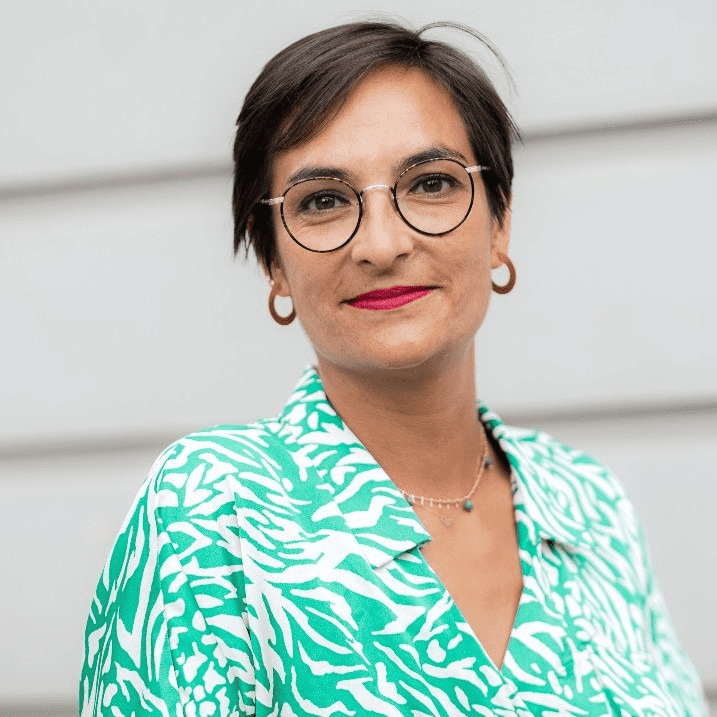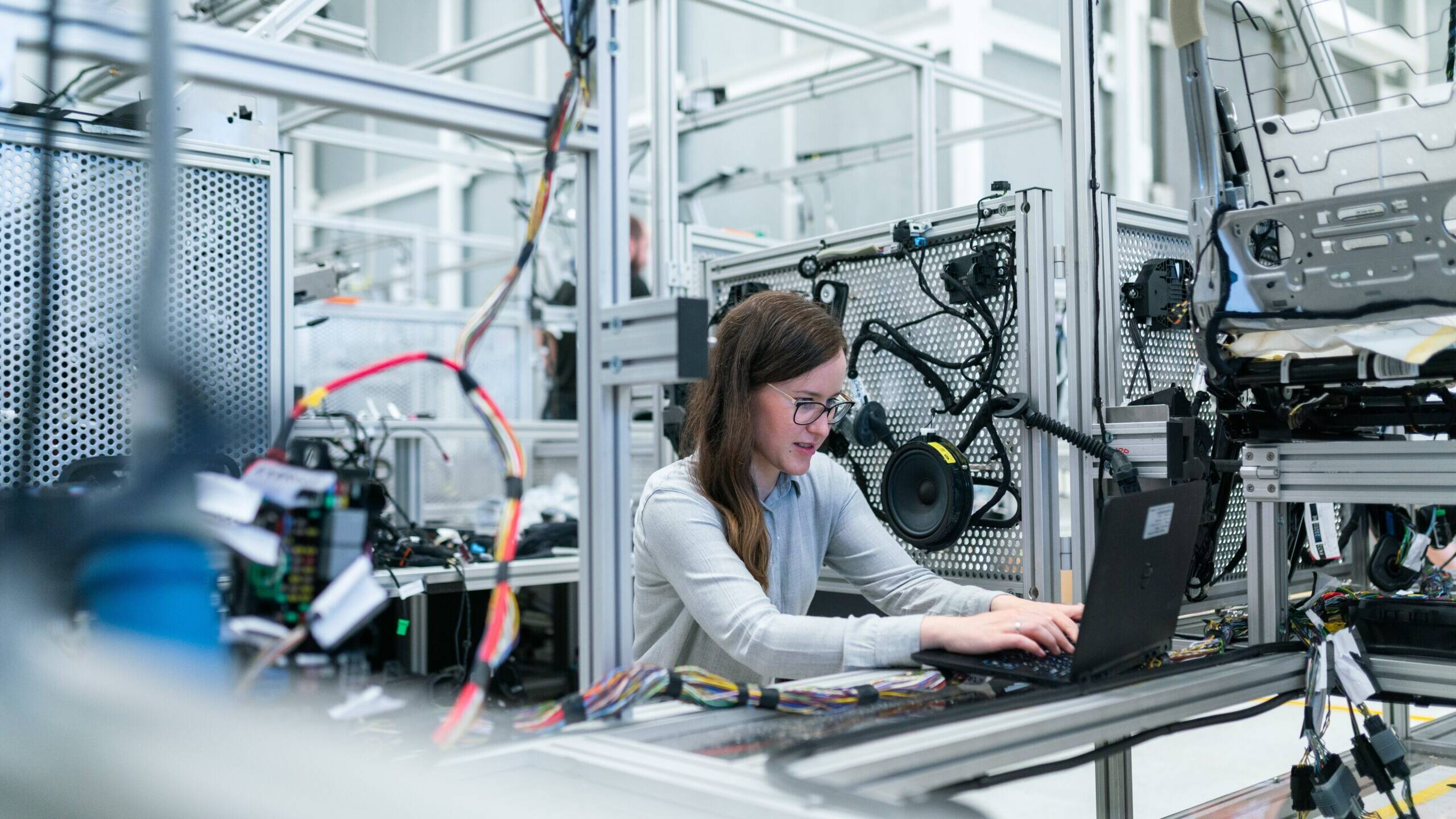Claire Munck has been working for a decade to grow the Belgian Business Angel Club BeAngels into a force to be reckoned with. She wants to see more ambitious entrepreneurs, teach more investors that they can start small and learn, and is an unwavering optimist when it comes to the future.

CEO, BeAngels
Since 2013, Claire Munck is CEO of BeAngels, a Belgian Business Angel club with 460 members that have invested 60m EUR in 380 startups so far. Claire joined BeAngels in 2009 as a board member and a member of the Selection Committee, which is in charge of pre-screening deals. She is also the founder of the Women Business Angel club which encourages women to become active as business angels. She has held positions in the World Business Angels Association and the Global Business Angel Network, and as an independent Board member contributes to the global strategy for Business Angels Europe.
You’ve been leading the successful business angel club BeAngels for a decade. What has changed during that time?
Angel investing has definitely become more popular. The number of people interested in making equity investments in startups has increased. At the same time, the profile of angel investors has evolved. We have seen younger people enter the field, investors that have less time to devote to startups and also smaller amounts to invest, but want to make their first steps today, not just at the end of their careers. BeAngels now proposes a variety of different investment products that are tailored to the amount of investment capital and the time people have at their disposal. While there still is a strong local focus and motivation to give back to the business community where people are based, business angels also increasingly want to connect with like-minded individuals in other countries. They see themselves as part of a European or even global community. This has created new opportunities for us. We ourselves are getting more international. We have a partnership with Verve Ventures and we have established a presence in Luxembourg as well as connected with Belgian people no matter where they are based. Finally, we’re seeing more support from the government and increased public recognition of the fact that business angels are essential for highly innovative companies to get off the ground.
The business angel community has become younger and more international. But has it also become more feminine?
It is moving in the right direction, although not fast enough. We’re at 15% female investor participation at BeAngels now, but increasing this number is still a massive challenge. In other words, women represent a very large untapped potential. Things need to change because entrepreneurs would profit from a more diverse investor base as well as from more diversity at the board level, not just in terms of gender but also in terms of age and professional background.
“A survey revealed that 94% of women were never told by their private bankers that they could invest in startups.”
Why are there not more female business angels?
I coordinated a white paper about this topic 12 years ago already. There are many credible explanations but on a societal level, we still haven’t found ways to address them. A survey revealed that 94% of women were never told by their private bankers that they could invest in startups, even though many countries offer investors tax incentives for doing so. Advisors refrain from encouraging women to take financial risks, it seems. In general, women have the tendency to doubt their capacities too much. They feel uncomfortable making the first step because they lack financial knowledge. We need to teach them that they can start small and learn. We also need to have more successful female entrepreneurs as role models. Many of us have become impatient with just how much time it takes for things to change.
What can be done to speed up change?
First of all, it’s not that women lack the interest to invest in startups. They lack appropriate information. Making it available to them is first and foremost the duty of people that advise women in financial matters. We need more role models of female investors as well. Female business angels that get portrayed in the press often have exceptional backgrounds, and the reaction to these examples is often: No wonder that she’s a business angel with such a career. We need to normalize angel investing. You don’t need to be an overachiever to take your first steps. If you’re interested in entrepreneurship and technology, you’re ready to start, no matter what your background is. You also don’t need a Ph.D. in finance to understand the minutiae of investing in startups. That’s the advantage of joining a group such as BeAngels in order to learn about such things and invest with people that have different and complementary backgrounds. You bring what you have to the table. No one is born an angel investor. But we do need a different language to raise women’s curiosity. For most men, the opportunity to achieve outsized returns might be reason enough to invest in startups. Women, however, want to use their wealth and experience to achieve a positive impact on the world – which they can have by backing entrepreneurs that challenge the status quo.
Can you give us a few examples of recent investments that the BeAngels network has made?
Education is a field that has attracted interest recently and two of our recent investments are in this field. Flowchase uses voice technology for English teaching and Wooclap makes classrooms more interactive. The environmental impact of data centers is also becoming more visible, and Ethernetics makes them more energy efficient. With Rubyx, we invested in a platform that promotes financial inclusion in emerging markets, and with Savics, we invested in a digital startup that fosters universal healthcare. But our members also like to invest in innovation where you might not expect it, such as art or luxury. Ionnyk, for example, has developed a paperlike digital art frame, and Levita, a startup created by two magicians, sells levitational display technology to luxury brands.
How would you characterize the Belgian startup scene in general?
Belgium has an excellent reputation regarding its higher education in science, engineering, and business. The Interuniversity Microelectronics Center IMEC, for example, is a world-renowned research center in nanoelectronics and digital technologies. I’d say the quality of startups founded in Belgium is high. Like Switzerland, we’re a plurilingual nation, which is an asset, but the problem is that Belgium isn’t one startup ecosystem, it is fragmented along the language borders. The different regions, Brussels, Flanders and Wallonia, also have their separate support instruments. It is only recently that we’ve seen initiatives from different actors to connect the separate regions.

Invest in Startups
As one of Europe’s most active venture capital investors, we grant qualified private investors access to top-tier European startups. With investments starting at EUR/CHF 10’000, you can build your own tailored portfolio over time and diversify across stages and sectors.
That sounds like Belgium has everything in place to further grow startup investments which reached EUR 1.5 billion in 2021?
The ingredients are all there, but what is lacking sometimes is ambition. The fear of failure is still too strong, and sometimes startups should also be bolder in their growth ambitions. Take France as an example. With its FrenchTech initiative, the country has created a very strong dynamic. They have this clear message from the state level that it’s great to be an entrepreneur, that entrepreneurs are champions, and this is very encouraging.
BeAngels and Verve Ventures established a partnership in 2020. What conclusion can you draw after 2 years?
For BeAngels, our starting point was that Verve would be a good partner because we follow the same goal of democratizing startup investments with a high degree of professionalism. Our offerings are also complementary from a geographic and stage perspective. From the vantage point of investors looking to diversify their holdings, this should be useful. Two years down the road now we can say that we were right in our assumption that this partnership would be of interest to our investors. They have become very active and have participated in a significant number of financing rounds on Verve Ventures’ platform.
During the pandemic, Verve’s digital approach has been a strong asset. Our investors haven’t become less active or hands-on as business angels. They came to see Verve as a way to diversify and make additional investments. It also ties in well with what I said earlier about angels wanting to connect with like-minded people internationally. We were Verve’s first partner, and you’ve established more partnerships with other groups since. It’s important to strengthen these cross-border ties.
2022 has been a difficult year. Risk appetite is waning. How do you react to this?
When we compare 2022 to 2021 and 2020, it’s important to mention that the last two years have been record years. True, there is more uncertainty today and a lingering fear of recession. But the media have exaggerated this uncertainty out of proportion. It’s not like the world is going to fall apart. Anyway, the challenge of managing entrepreneurs’ and investors’ expectations is complex. We need to step back from the business cycle and give people a broader perspective. Valuations have come down and are much more reasonable than last year. Shrewd investors understand that they have a better position in negotiations now and that it is a good time to invest. If you think that innovation and entrepreneurship are essential to solving humanity’s problems, and you want to foster the creation of new businesses and jobs, you need to act on this conviction, no matter what the environment looks like today.
“As a business angel, the future is always bright.”
That sounds almost a bit too optimistic.
As a business angel, the future is always bright. And entrepreneurs are always too optimistic, otherwise, they don’t get started. That doesn’t mean that we lack a connection to reality or that we’re not affected by what is happening. It means that we want to write our own future. We mobilize our wealth and don’t let it just sit around. We channel a part of the money destined for our children to the economy of the future. In this regard, yes, it makes sense to be optimistic.
Written by
WITH US, YOU CANCO-INVEST IN DEEP TECH STARTUPS

Verve's investor network
With annual investments of EUR 60-70 mio, we belong to the top 10% most active startup investors in Europe. We therefore get you into competitive financing rounds alongside other world-class venture capital funds.
We empower you to build your individual portfolio.
More News
14.10.2022
“We need to show women role models in investment”
Angélique Gerard, one of France’s top business angels, says that the reluctance of women to invest more in startups is a result of gender-biased education and culture. Overcoming these stereotypes would finally allow everyone to think more about the merits of a startup and less about the gender of its founders, she says in our interview.
21.09.2022
Galata Business Angels partners with Verve Ventures
Turkey’s premier business angel club Galata Business Angels (GBA) and Verve Ventures have concluded a partnership that allows GBA members to access the large and varied deal flow that Verve Ventures offers to private investors. With a 100% digital investment process, investing in startups has never been easier for Turkish investors.
17.03.2022
“Women need to be empowered to try startup investing”
As General Counsel, Odile Gastaldo was part of the core team that built up French telecom provider Neuf Cegetel from scratch to one of Europe’s biggest IPOs in 2006. She loves investing in startups and says women can overcome their self-doubt when it comes to investing.
Startups,Innovation andVenture Capital
Sign up to receive our weekly newsletter and learn about investing in technologies that are changing the world.




